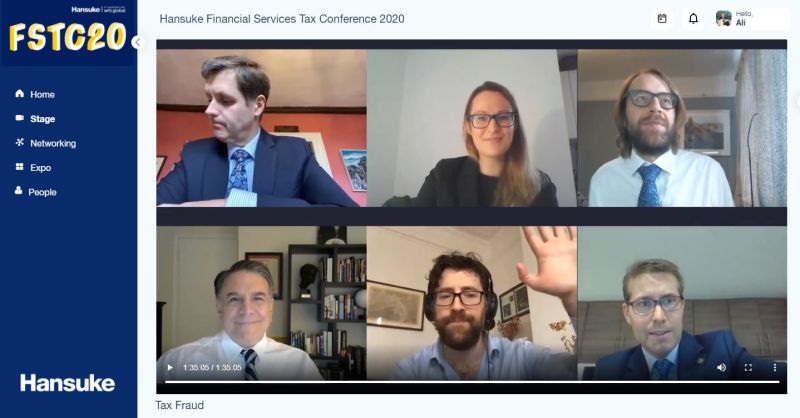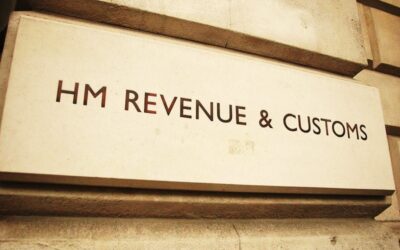Our Director, George Turner was recently asked to speak on a panel at the Hansuke Financial Services Tax Conference, during a session on tax fraud. The panel was moderated by Alice Kemp, Barrister at RPC and included Simon York, Director of the Fraud Investigation Service at HMRC, Donal Griffin, Financial Reporter at Bloomberg, Eric Ferron, Director General of Criminal Investigations at the Canadian Revenue Authority and Michael Sallah, Senior Reporter at the International Consortium of Investigative Journalists.
His remarks focused on whether tax avoidance could and should be subject to criminal investigation and prosecution.
George Turner’s remarks at the panel on Tax Fraud, Thursday 19th November:
Thank you so much for inviting me, it is really a privilege to be invited to talk on such a high profile panel.
Much of the focus of investigative journalism over the last ten years has focused on tax avoidance.
And it is held as an article of faith by many journalists, politicians and society more widely that there is a clear dividing line. Tax avoidance is legal, while tax evasion is illegal.
This faith has developed for a number of reasons. For journalists the idea that tax avoidance is legal provides a convenient defence against libel. How can someone be defamed for being accused of doing something legal?
A tax avoidance industry that makes billions of dollars a year selling and marketing tax avoidance schemes around the world wouldn’t make nearly as much money telling people that their schemes are potentially criminal.
However, without wanting to cast aspersions on the concept of faith more generally, this particular faith is a fiction.
In English law tax evasion is most often prosecuted under the Common Law Offence of Cheating the Revenue, where the potential liability is draconian in comparison to what we heard from Eric earlier about the criminal code in Canada. Cheating carries with it a maximum penalty of life imprisonment and an unlimited fine.
It is defined by the Oxford Dictionary of Law Enforcement as: “To make a false statement relating to tax with intent to defraud the Crown… or to deliver or cause to be delivered a false document relating to tax with similar intent.”
There is no requirement for the offence to be committed by the taxpayer, it can be committed by anyone who advises the taxpayer, or assists them in the preparation of a tax return, i.e. an accountant or a lawyer.
There is no requirement for concealment or deception, the conspirators can be open about what they are doing. There is not even a requirement for the revenue to demonstrate any actual loss.
As set out in the leading textbook on English criminal law:
“It is difficult to see how the offence could be stated in more expansive terms. The offence is of course even broader when charged as a conspiracy to cheat, as it often is.”
What this means is that pretty much the only issue at trial is whether the tax position being claimed is honest.
So what is dishonesty, in the legal sense? Quite simply, as has now been put beyond doubt by the Supreme Court, dishonesty is simply not being honest, and is judged against the standards of ordinary decent people.
This is an important point, because up until recently the courts believed that in order to be convicted of a crime of dishonesty the prosecution had to prove that the person committing the crime knew that they were being dishonest, that is now no longer a requirement, for the obvious reason that the more dishonest someone is the harder it would be to convict them. As put succinctly by Lord Nicholls “Honesty is not an optional scale, with higher or lower values accordingly to the moral standards of each individual”.
Now lets consider for a moment what the design and promotion of a tax avoidance scheme means in practice. Tax avoidance as understood by tax law, is where a real economic transaction is made to appear to be something else in order to cause a loss to the revenue, a gain for the taxpayer, and a healthy fee for the scheme operator.
This often involves a set of contrived or artificial transactions with no real business purpose, which means that the transactions do not provide an honest representation of the real economic position of the person or company involved.
In corporate taxation this can often mean things like paying royalties, commissions and management fees to shell companies that employ no staff or have no discernable operations. For individuals this often means the creation of fake investment losses, which are written off against a tax liability but are never in reality suffered.
Given widespread and targetted anti anti-avoidance rules schemes often require an element of concealment, which is why accountants and lawyers fight so hard to keep their advice from entering the public domain, or from being disclosed to tax authorities.
Now putting this together, we can see that many, and in my opinion the majority of tax avoidance schemes could easily fall foul of the law on cheating. Where there has been an active attempt to conceal the scheme, or a failure to information relating to a scheme, that is clearly fraud.
Given the ultimate judge of whether or not a scheme is dishonest is a group of randomly selected members of the public, and the total disdain with which the public view tax avoidance, I think many tax avoidance schemes, if put before a jury would be found to be dishonest, and therefore criminal.
In the past, the UK has prosecuted barristers and accountants for operating and tax avoidance schemes, although such examples are relatively few and far between.
We heard from Michael earlier the issues with deferred prosecution agreements in the US. In the US, the IRS has done what he UK never has, and prosecuted big four accountancy firms firms for their role in designing and selling tax shelters to high net worth individuals.
A previous head of HMRC, Dave Hartnett, once famously told a journalist that the reason why HMRC did not prosecute as many cases of tax fraud in the tax advisory profession compared to the US, was simply because advisers in the UK were more honest than American advisers.
Make of that what you will!
But the simple fact is there is no requirement in the UK, and I think elsewhere to prosecute tax fraud as a criminal offence. Tax authorities can instead seek to claim back any taxes lost through the civil legal process.
In many cases these civil cases do not even come to court, with the taxpayer settling the case. Indeed, there is no requirement on tax authorities to plead fraud at all, with many cases involving clearly fraudulent schemes being considered under anti-tax avoidance laws with no specific allegations of fraud being made out.
This approach clearly can have advantages for tax authorities which are focused on revenue raising, however it is also an approach which in my view encourages avoidance.
It must be said that it is HMRC’s policy that they will not prosecute most cases of tax fraud as a criminal offence, instead having a preference to pursue civil claims. This is clearly stated in HMRC’s criminal investigation policy which states the following:
“It’s HMRC’s policy to deal with fraud by use of the cost effective civil fraud investigation procedures under Code of Practice 9 wherever appropriate. Criminal investigation will be reserved for cases where HMRC needs to send a strong deterrent message or where the conduct involved is such that only a criminal sanction is appropriate”
This does sometimes lead to some bizarre outcomes, such as one case this year, Lindsay Hackett vs HMRC where HMRC was seeking a £13m fine from an individual involved in a fraudulent VAT scheme. The individual in question sought to claim that it was an abuse of process to not try them in a criminal court, where they would have greater procedural protections.
As the judge in the case noted, it is not often that someone expresses a preference for a criminal trial!
Another good example of this policy in action was provided this week, with the front page of the Financial Times declaring a new crackdown on corporate tax avoidance.
This related to a disclosure facility regarding corporate profit shifting. The disclosure facility was prompted by a series of investigations into large multinationals in the UK. If you look at what HMRC says about those investigations they say:
“HMRC has found that some Multinational Enterprises have adopted cross border pricing arrangements which are based on an incorrect fact pattern.”
What is an incorrect fact pattern if not a lie? An alternative fact perhaps?
It goes onto say:
“Some have made incorrect assumptions, or not implemented arrangements as originally intended or declared to HMRC, so that there is a divergence between the fact pattern on which the Transfer Pricing analysis is based, and what is actually happening on the ground. This could be for a variety of reasons, including incorrect or misleading statements on the nature or relative value of functions, assets and risks.
The description of the behaviours outlined by HMRC clearly point to fraud, but all HMRC are doing is inviting its large business customers to make a voluntary disclosure to resolve the matter.
I don’t think this approach will be sustainable in the future. Partly because there will be institutions like TaxWatch seeking to push government to take a stronger approach to tax fraud, and also because as we emerge from the Coronavirus crisis and governments start asking the public to contribute to paying back the vast amounts of money spent over the last six months, I do not think the public are going to tolerate an approach where people and companies committing tax fraud are spared a criminal prosecution.



